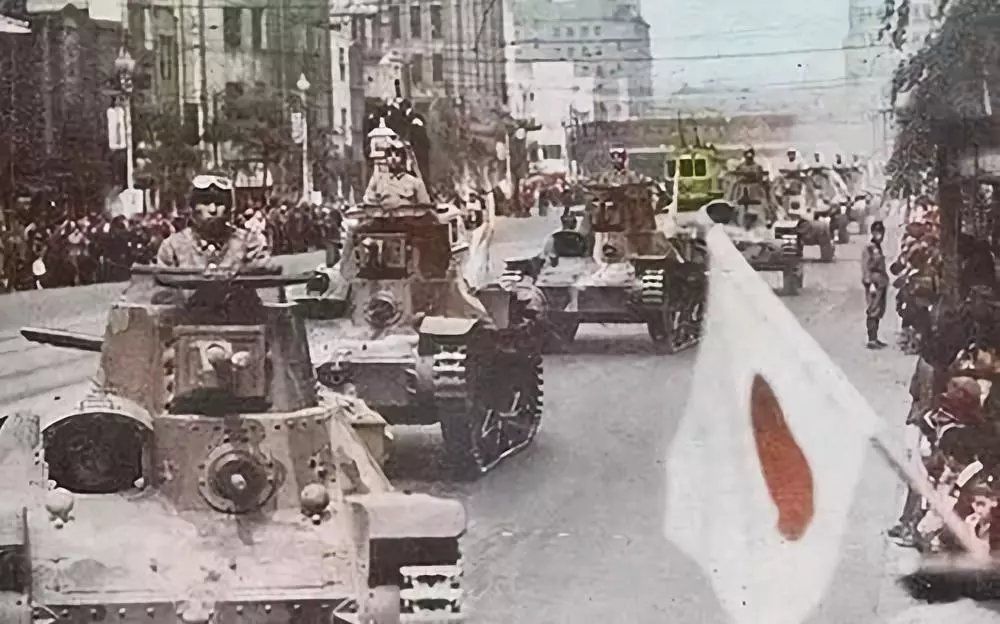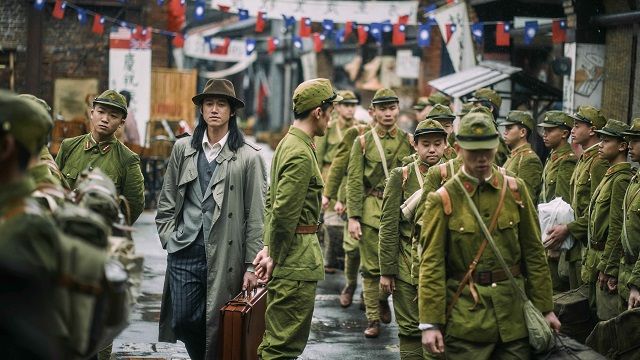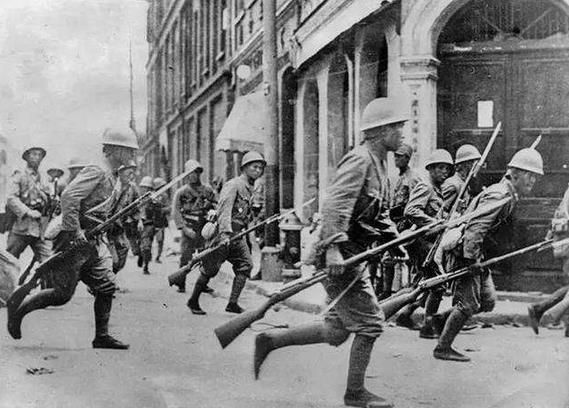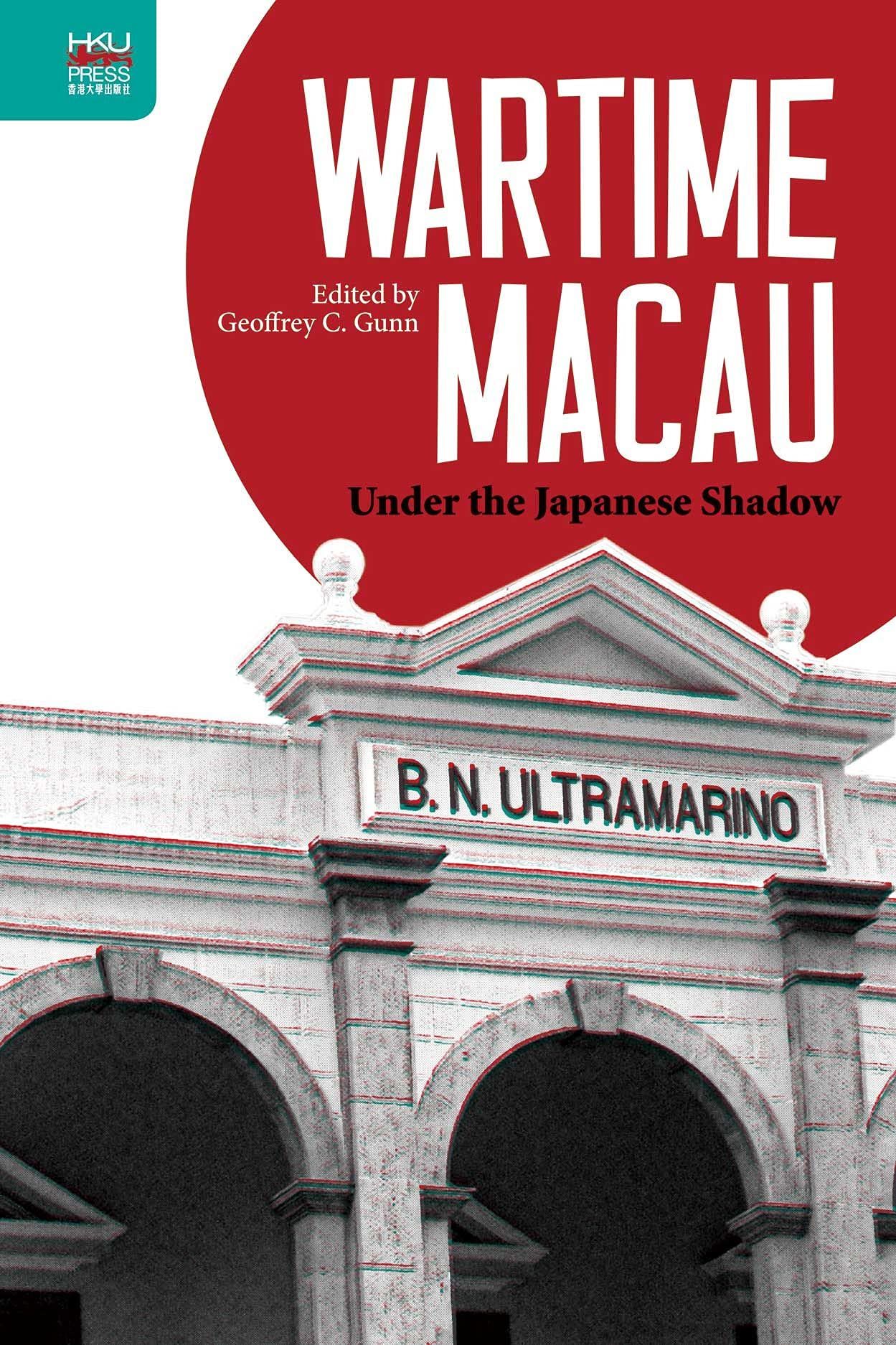
澳門90後|社會科學碩士|財經媒體|澳門研究| 生活瑣事
Drugs in Macau, the Japanese Army also praised it in World War II
Author: Cheng Weiheng (member of "Storytelling on the Frontier of the Empire")
"Yellow," "gambling," and "drug" have always been popular topics in Macau. Last year, I introduced an opium king, Li Hyssan , who was very popular in Hong Kong and Macau. The response was relatively good, and he decided to continue to talk about the story between Macau and "drug". Today, the protagonist is the notorious Japanese army of World War II.
After the end of World War II, the Japanese who had committed crimes during the war were tried. Many of the Class A war criminals had committed drug trafficking. Although this was nothing compared to other crimes, the hidden behind History is still worth pondering.
Scholar Li Enhan pointed out that the Japanese government once planted various drugs (such as opium poppy) on a large scale in the areas occupied by China, and made huge profits from it. Today, the main focus is on the Japanese army's drug trafficking network in southern China, because it is closely related to Macau (a non-Japanese occupied area).
a drug chain
Li Enhan pointed out that the Japanese army had not occupied South China for a long time and had a large area, so the drug trafficking activities were concentrated in Xiamen and Guangzhou. At that time, Xiamen belonged to Japan's sphere of influence, so Japan's drug trafficking activities were more active in this area than in Guangzhou.
Before the outbreak of a full-scale war between China and Japan, Japan had openly carried out drug trafficking activities in Fujian. According to a report made by Japan in the 1920s, although the cultivation and smoking of opium were prohibited in Fujian Province, there were more than 200 in Xiamen alone. Opium dens opened by Japanese people fully reflect the prohibition as a fake. Why do many Japanese people dare to violate the Chinese government's ban and openly sell opium?

The simple answer is that they enjoy extraterritorial rights in Fujian, the ban does not apply to them, and they naturally sell opium without fear.
Interestingly, these Japanese people are not all Japanese, many are Taiwanese who are naturalized Japanese, and even Chinese. It is said that many Japanese Taiwanese were engaged in drug smuggling under the protection of the Japanese consulate in Xiamen at that time, and later organized the "Xiamen Taiwan Residence Association". How blatant opium is.
Of course, the reason why the Japanese government sheltered them was not because of their "same nationality and three-point relationship", but wanted to use their hands to make huge profits from selling opium (it is said that the Taiwan Governor's Office participated in the Taiwan-Xiamen opium trade) , and then use the funds to fund Fujian bandits and warlords to rebel against the Chinese government. In today's words, it is completely "eating Chinese rice and smashing China's pot".
Japanese Taiwanese and Big Traitor
The Japanese Chinese are obviously the white gloves of the Japanese government, and the most famous of them is Ye Qinghe, who is known as the "opium king". Ye Qinghe was born in Xiamen and was later naturalized as a Japanese citizen. Since the author could not find more information about him, how did he get on with the Japanese government seems to be a big question worthy of answering.

In any case, Ye must have a good relationship with Japan, otherwise he would not have succeeded in naturalization. In addition, he was once arrested by the Fujian government and the Japanese consular intervened to release him, which proves that Ye has a close relationship with Japan. After the fall of Xiamen and Guangzhou, both Japanese and Taiwanese and Ye Qinghe played a very important role in drug trafficking.
In May 1938, the Japanese army captured Xiamen, and later allowed opium to be sold in the form of monopoly, and established the Anti-Smoking Bureau to be responsible for opium affairs, and the bureau was headed by Japanese-Taiwanese Lin Jichuan (but the actual control of opium sales rights was the Japanese Navy. ). In March of the following year, Guangzhou was also occupied, and the Japanese-Taiwanese Chen Siqi established the "Fumintang" in Guangzhou to contract the opium franchise in Guangzhou and even Guangdong Province.

It can be seen that the Japanese Taiwanese played a very active role in helping the Japanese army trade opium in South China. Why the Japanese army still needs the Japanese Taiwanese to serve as white gloves to sell opium in the occupied area, the author did not write much.
As for Ye Qinghe, he was also a right-hand man of the Japanese army. In familiar words, he was a "big traitor". It is said that he established the "Fuxing Company" in Hong Kong with the assistance of Touyama Zuobi (the son of the famous Japanese Japanese consulate general) Touyama Zuobi, who served in the Japanese Consulate General in Hong Kong. During the war, the company has been going between Hong Kong and Guangzhou, engaged in trade and transportation business, such as transporting gasoline from Hong Kong to Guangzhou, and then transporting Guangzhou grain to Hong Kong.
At first glance, Fuxing Company seems to be an ordinary company, but I am afraid there is another inside story.
Inside Story: Macau's drugs are "flat, pretty, and upright"
After the fall of Guangzhou, Fuxing Company set up a branch in Guangzhou, which is very logical because of its close business relationship with Guangzhou. However, Fuxing Company later opened a branch in Macau, but researcher Li Enhan did not have any information to know what kind of business this Macau branch was engaged in, which was a bit mysterious.
Based on Li Enhan's research and the author's understanding, the Macau branch, and even the entire Fuxing Company, must be involved in opium trading.
Li Enhan said that when the Pacific War broke out, Japan needed more funds to invest in the war, so the Japanese army expanded the scale of opium cultivation in the occupied areas and developed financial resources. In addition to growing more opium, Japan also actively imported opium for resale, including Macau.

It is said that a lot of opium in Macau was imported from Iran at that time, and Iranian opium was the best quality opium, and the price in Macau was only half of China's. In 1942, Japan even established the Opium Monopoly Bureau in Macau, which made Fumintang, which originally owned the franchise in Guangdong, unable to operate and closed down.
It is conceivable that the "flat, beautiful and upright" Macao opium was exactly what the Japanese army needed. Simply buying the opium from Macao could earn high profits as soon as it changed hands. As for the company responsible for transporting opium from Macau to Guangzhou, the author guessed that it was probably the Fuxing Company.
For a long time, the historical research of Macau during World War II seems to focus on the "anti-Japanese", and seldom elaborates on the usefulness of Macau to Japan. For drugs, Macau is a good transit point. It is first imported from all over the world to Macau, and then shipped to China for resale for profit. Few people have studied this aspect in the past.
In addition, since Japan is involved in "poison" in Macau, presumably "yellow" and "gambling" can also find traces of Japan, and these stories really need people to discover more.
#Number of articles: 1️⃣2️⃣2️⃣
✅ Patreon |👍Facebook Page |📣 Call for Papers |👂 Podcast
Like my work?
Don't forget to support or like, so I know you are with me..

在帝國邊陲講故事

四個社會科學和歷史背景的作者,嘗試訴說一座名叫「澳門」的看不見的城市。它的故事不止關乎自身,也關乎背後的帝國和邊陲。 👇我們的故事|Podcast|免費電子報|Patreon https://linktr.ee/macaology_empire
Comment…